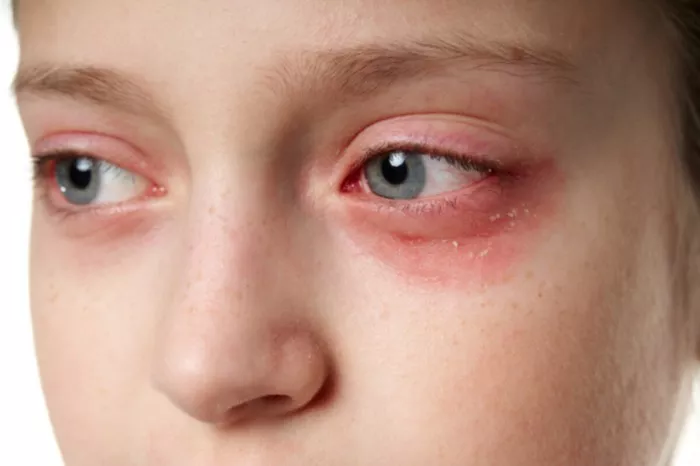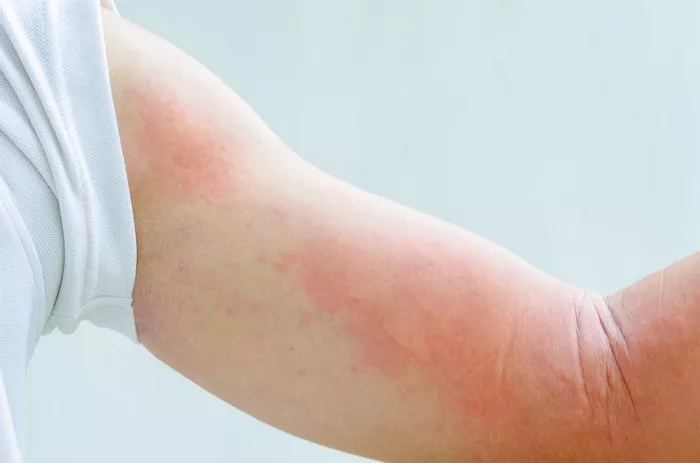Eczema, a chronic skin condition characterized by red, itchy, and inflamed patches, can be particularly troublesome when it affects the delicate skin around the eyes. Known as eyelid eczema or periocular dermatitis, this condition not only causes discomfort but can also impact one’s appearance and confidence. Managing eczema around the eyes requires a multifaceted approach that addresses both the underlying causes and the symptoms. In this article, we will explore the causes, symptoms, and effective strategies for dealing with eczema around the eyes.
Understanding Eczema Around the Eyes
Eczema is a complex condition with various triggers and contributing factors. When it affects the skin around the eyes, it can be especially challenging to manage due to the sensitivity of this area. Several factors can contribute to the development of eczema around the eyes, including:
Genetics: A family history of eczema or other allergic conditions can increase the likelihood of developing eczema around the eyes.
Allergens: Exposure to allergens such as pollen, pet dander, dust mites, and certain skincare products can trigger eczema flare-ups.
Irritants: Harsh chemicals found in cosmetics, soaps, and skincare products can irritate the delicate skin around the eyes, leading to eczema.
Weather: Dry or cold weather can exacerbate eczema symptoms, as can excessive exposure to sunlight and wind.
Stress: Emotional stress and anxiety can weaken the immune system and trigger eczema flare-ups.
Recognizing the Symptoms
Eczema around the eyes can present with various symptoms, including:
Redness and inflammation
Itching and irritation
Dry, flaky skin
Swelling and puffiness
Crusting or oozing of the skin
Dark circles or discoloration
If you experience any of these symptoms, it’s essential to consult a dermatologist for a proper diagnosis and treatment plan.
Effective Strategies for Managing Eczema Around the Eyes
While eczema around the eyes can be challenging to manage, several strategies can help alleviate symptoms and prevent flare-ups. Here are some effective approaches:
1. Gentle Skincare Routine
Opt for gentle, fragrance-free skincare products specifically formulated for sensitive skin. Avoid harsh cleansers and makeup removers that can strip the skin of its natural oils and exacerbate eczema symptoms. When cleansing the eye area, use lukewarm water and pat the skin dry gently with a soft towel.
2. Moisturize Regularly
Moisturizing is key to managing eczema around the eyes. Choose a hypoallergenic, fragrance-free moisturizer and apply it to the eye area at least twice daily. Look for moisturizers containing ingredients like ceramides, hyaluronic acid, and shea butter, which help hydrate and repair the skin barrier.
3. Avoid Triggers
Identify and avoid triggers that can exacerbate eczema symptoms. This may include certain skincare products, makeup, detergents, and environmental allergens. Consider keeping a diary to track your symptoms and potential triggers, allowing you to make informed choices about your skincare and lifestyle habits.
4. Use Topical Treatments
In some cases, your dermatologist may prescribe topical treatments to manage eczema around the eyes. These may include corticosteroid creams or ointments to reduce inflammation, calcineurin inhibitors to suppress the immune response, or barrier repair creams to strengthen the skin barrier.
5. Practice Stress Management
Stress can worsen eczema symptoms, so it’s essential to find healthy ways to manage stress and anxiety. Incorporate relaxation techniques such as deep breathing, meditation, yoga, or tai chi into your daily routine. Prioritize self-care activities that promote emotional well-being and reduce stress levels.
6. Protect Your Skin
Protect the delicate skin around your eyes from harsh environmental factors by wearing sunglasses when outdoors and using a gentle sunscreen formulated for sensitive skin. Avoid rubbing or scratching the eye area, as this can further irritate the skin and exacerbate eczema symptoms.
7. Seek Professional Help
If over-the-counter remedies and lifestyle changes do not provide adequate relief, consult a dermatologist for further evaluation and treatment. Your dermatologist can recommend prescription medications or other interventions to manage your eczema effectively.
Conclusion
Eczema around the eyes can be challenging to manage, but with the right approach, you can alleviate symptoms and prevent flare-ups. By adopting a gentle skincare routine, avoiding triggers, and seeking professional help when needed, you can effectively manage eczema around the eyes and enjoy healthier, more comfortable skin. Remember to be patient and consistent in your skincare efforts, as managing eczema is often a long-term process. With diligence and proper care, you can minimize the impact of eczema on your quality of life and maintain radiant, healthy skin around the eyes.
























